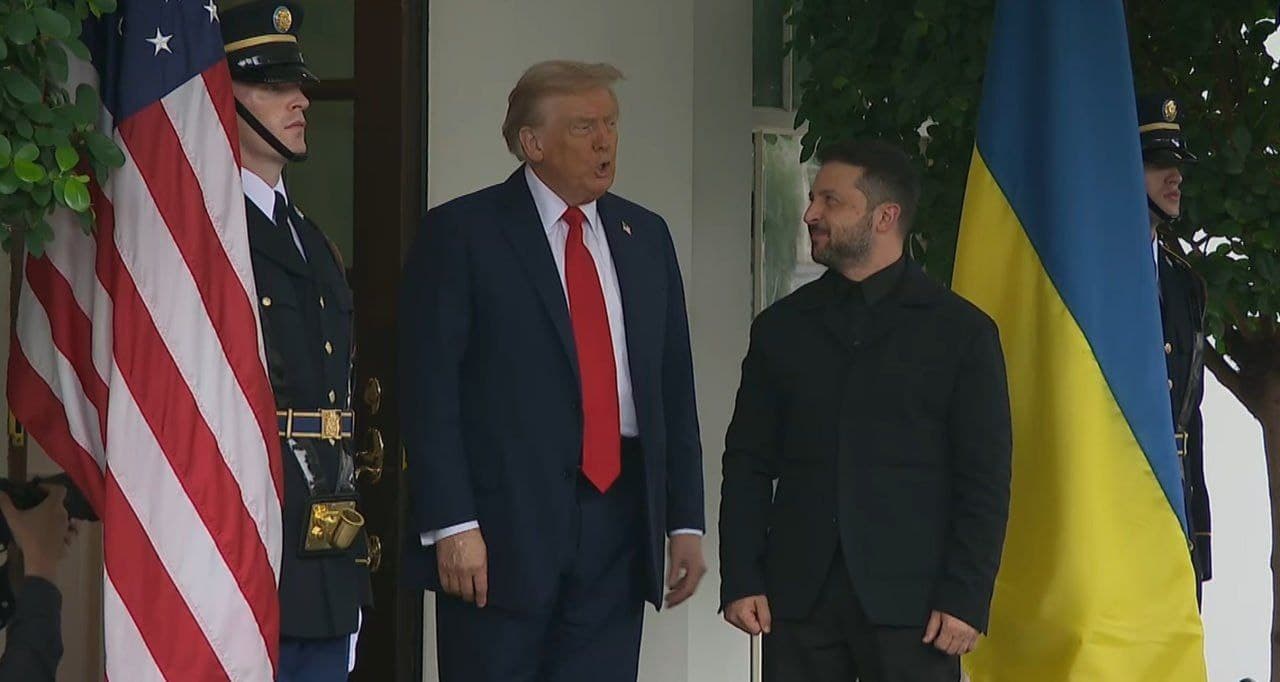#BREAKING | US President Donald Trump welcomes Ukrainian President Volodymyr Zelensky at the White House.
Trump Hosts Zelensky at White House, Strengthening U.S.-Ukraine Alliance Amid Ongoing Conflict
In a significant diplomatic engagement, President Donald Trump welcomed Ukrainian President Volodymyr Zelensky to the White House on Wednesday, marking a pivotal moment in U.S.-Ukraine relations amid the ongoing conflict in Eastern Europe. The meeting, which took place in the Oval Office, was centered around discussions of military aid, economic support, and the broader geopolitical implications of Russia"s aggression towards Ukraine. This visit comes at a time when the Ukrainian government is seeking to fortify its defense capabilities and bolster international support in the face of escalating tensions with Russia.
Background & Context
The relationship between the United States and Ukraine has been under intense scrutiny since Russia"s annexation of Crimea in 2014 and the subsequent conflict in Eastern Ukraine. The United States has historically provided military and economic assistance to Ukraine, viewing it as a critical ally in the fight against Russian expansionism. President Zelensky, who has been vocal about the need for increased support from Western allies, dressed in mourning black for this meeting, signaling the gravity of the situation and the tense diplomatic outlook he faces in securing aid for his nation. As previously reported, this attire reflects the ongoing struggles in Ukraine and the urgency of the discussions at hand.
Key Developments
During their meeting, Trump and Zelensky discussed a range of topics, including the provision of military equipment and financial resources to assist Ukraine in its defense efforts. President Trump emphasized the importance of a strong U.S.-Ukraine alliance, stating, "We must stand firm against any acts of aggression that threaten Ukraine"s sovereignty." The two leaders also addressed the potential for a trilateral meeting involving Russia, with Trump expressing optimism about President Putin"s willingness to engage in peace discussions. For more details on this aspect of the meeting, see our recent developments.
The meeting concluded with a joint press conference where both leaders reiterated their commitment to enhancing bilateral relations. Zelensky expressed gratitude for U.S. support, highlighting that continued assistance is vital to Ukraine"s ongoing fight against Russian aggression. "This support is not just about Ukraine; it is about the principles of democracy and sovereignty that we all cherish," he stated.
Broader Impact
The implications of this meeting extend beyond immediate military support. Experts suggest that strengthening U.S.-Ukraine relations could deter further Russian aggression in the region. Political analysts have noted that this engagement serves as a clear signal to Moscow that the United States remains committed to its allies in Eastern Europe. Historical comparisons to previous U.S. engagements with Eastern European nations during the Cold War suggest that a robust alliance with Ukraine could play a crucial role in countering Russian influence.
Moreover, the meeting has garnered attention from various international observers who view it as a barometer of U.S. foreign policy under the Trump administration. As tensions continue to rise, the international community is closely monitoring how the U.S. will balance its support for Ukraine with its broader strategic interests in the region.
What"s Next
Looking ahead, the focus will likely shift to the specifics of U.S. military aid and the timeline for implementation. Zelensky"s administration has already signaled that it will push for expedited assistance, particularly in the form of advanced weaponry and training for Ukrainian forces. Additionally, diplomatic efforts to facilitate peace talks with Russia may gain momentum in the coming weeks, especially if the U.S. can leverage its influence effectively.
As the situation evolves, continued coverage of U.S.-Ukraine relations will be crucial. For those interested in deeper insights into the ongoing diplomatic efforts, our earlier coverage provides a comprehensive analysis of the current geopolitical landscape.



![[Video] Gunfire between Iraqi security forces and Sadr militias in Baghdad](/_next/image?url=%2Fapi%2Fimage%2Fthumbnails%2Fthumbnail-1768343508874-4redb-thumbnail.jpg&w=3840&q=75)
